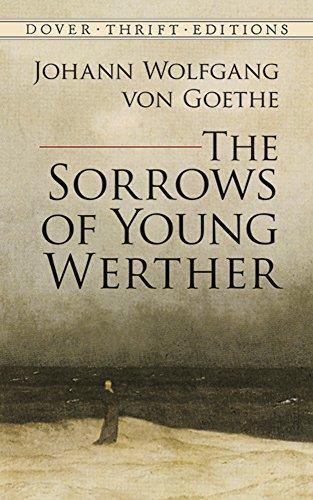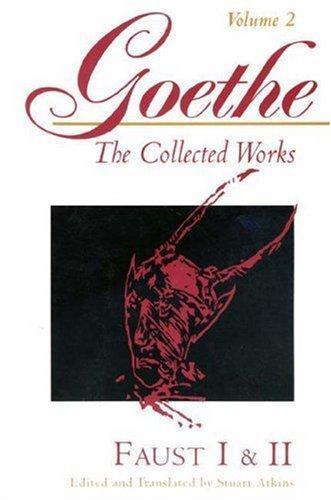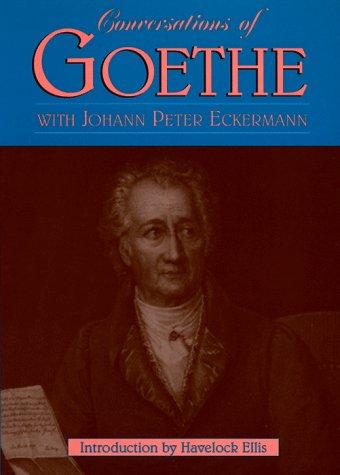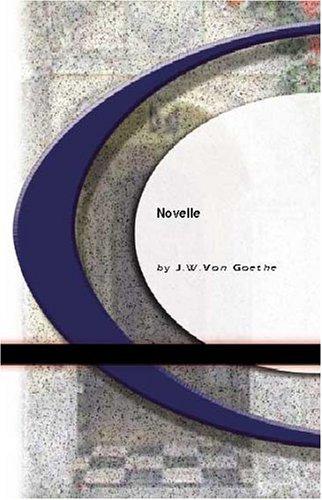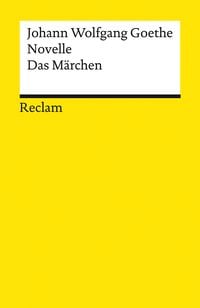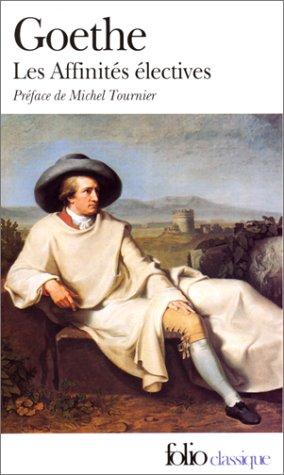Johann Wolfgang von Goethe (28 August 1749 – 22 March 1832) was a German poet, playwright, novelist, scientist, statesman, theatre director, and critic. His works include plays, poetry, literature, and aesthetic criticism, as well as treatises on botany, anatomy, and colour. He is widely regarded as the greatest and most influential writer in the German language, his work having a profound and wide-ranging influence on Western literary, political, and philosophical thought from the late 18th century to the present day.Goethe took up residence in Weimar in November 1775 following the success of his first novel, The Sorrows of Young Werther (1774). He was ennobled by the Duke of Saxe-Weimar, Karl August, in 1782. Goethe was an early participant in the Sturm und Drang literary movement. During his first ten years in Weimar, Goethe became a member of the Duke's privy council (1776–1785), sat on the war and highway commissions, oversaw the reopening of silver mines in nearby Ilmenau, and implemented a series of administrative reforms at the University of Jena. He also contributed to the planning of Weimar's botanical park and the rebuilding of its Ducal Palace.Goethe's first major scientific work, the Metamorphosis of Plants, was published after he returned …
Johann Wolfgang von Goethe
Author details
- Aliases:
-
योहान वोल्फगांग फॉन ग्यॉटे, Johann Wolfgang v Goethe, J.-V. Gete, and 331 others
Goetʻe, .. Gete, Iogann V. Göte, יוהן וולפגנג פון גתה, Joh. Wolfgang von Goethe, Иоханн Вольфганг фон Гёте, J. W. v Goethe, ဂါတာ ဖွန်ယိုဟန်း ဝုဖဂန်, י. וו. פאן געטהע, Johan Wolfgang von Goethe, Gě'ṭe, И. В Гете, Иоганн Вольфганг Гете, .. Ǧīta, Göte Johan Vol'fgang fon, Johann-Vol'fhanh Hete, Iogann Volʹfgang Gete, ਯੋਹਾਨ ਵੁਲਫਗੈਂਗ ਵਾਨ ਗੇਟੇ, Johann Wolfgang Goethe, ヨハン・ヴォルフガング・フォン ゲーテ, Yohan Ṿolfgang Fon Geteh, יאהאן װאלפגאנג געטהע, Jochann Volfgang Kote, Göthe, Johan W. von Goethe, J.V. Gete, .. Goethius, Ǧītih, Iohan Volp'gang Goet'e, Γιόχαν Βόλφγκανγκ Γκαίτε, Ioannes Volfgangus Goethius, J. V. fon Gete, Jan Wolfang Göthe, Иогьанн Вольфганг фон Гёте, י.װ געטהע, Ǧīta, Johanas Volfgangas Gėtė, ギヨオテ, Jehan Vol'fhanh Hjete, Јохан Волфганг фон Гете, J. V. Gót, W. von Goethe, 歌德, י. ו גיתה, Йоганн Вольфганг фон Ґете, Ioannes W. Goethe, Jītī, یوهان ولفگانگ گوته, Yohan Polp'ŭgang p'on Koet'e, ヨーハン・ヴォルフガング・フォン ゲーテ, .. Ǧītah, J. W. v ゲーテ, Ǧītah, Iogann Volʹfgang fon Gëte, Iogann Vol'fgang Gete, Göte, Volfgango Goethe, Jogann Gete, Ǧūtah, יוהן וולפגנג גתה, Ёган Вольфганг фон Гётэ, Յոհան Վոլֆգանգ ֆոն Գյոթե, Landgeistige in Schwaben, ヨハン・ヴォルフガング・フォン・ゲーテ, Ge de, João Wolfgang von Goethe, Wolfgang Goethe, Iogann Vol'fgang Gëte, Yôhan Wolfgang Gête, Jogann Vol'fgang Gete, Giochan B. phon Gkaite, Yohan Welfgang fon Goytä, جوهان ولفغانغ غوته،, Johans Volfgangs fon Gēte, Iohan Wolphgang Goethe, Johan Volfgang Gete, 约翰・沃尔夫冈・冯・歌德, Johann Wolfgang von GOETHE, יאהאן וואלפגאנג פאן געטע, Goethius, Yohan Volfgang Gyotʹe, Koet'e, .. Göte, غوته، يوهان فولفغانغ فون،, I. W. Gete, Yohan Volfqanq Qöte, Иоганн Вольфганг фон Гёте, Yūhān Fūlfġānġ fūn Ġūtih, Γιόχαν Βόλφγκανγκ φον Γκαίτε, Ṿ. Fon-Geteh, וו גתה, J. V. Kote, Ṿ Fon-Geteh, J. V. Gēte, Jan Wolfgang Goethe, ゲーテ, Joh. Wolfg. v Goethe, 요한 볼프강 폰 괴테, جيتى، جوهان ولفجانج, Iogann Volʹfgang Gëte, Yohan Wolfgang Gyot'e, Yūhān Wulfgāng fūn Gūta, װ.פ געטע, Iogann W. Gete, J. W. von Goethe, י. וו געטהע, Gêôt'ê, Iohan V. p'on Goete, जोहान वुल्फगांग गेटे, Y. Ṿ. Gitah, Yohan Ṿolfgang Fon- Geteh, Gotenin, Giochan Bolphnkannk êphonë Gkaite, Johann Wolfgang VonGoethe, גיתה, Y. V. Qöte, Ëhan Vol'fhanh Hëte, Juan W. Goethe, గేథే, جوته، يوهان ولفجانج فون, יוהאן וולפגנג פון גיתה, Giov. Volfango Göthe, Yohan Volfgang Gyot'e, 约翰·沃尔夫冈·冯·歌德, J.V. Gēte, Johann W. Goethe, Yūhān Fūlfġānḡ Ġūtah, V. f G'ote, Йоһанн Вольфганг фон Гёте, J. W. Göthe, Ko-tê, י. װ געטהע, Иоган Гёте, Иоҳан Волфганг фон Гёте, .. Göthe, V. Gēte, גתי, יוהאן וולפגנג פון גטה, Y. Ṿ Gitah, Goethe, .. Goethe, יוהן וולפגנג גיתה, J. W. von Göthe, Yohan-Bolpeugang-pon-Goete, Von Goethe, گوته، يوهان ڤلفگنك فن, .. G'ote, Йоһан Волфганг фон Гөте, Jean Wolfgang von Goethe, יוהן וולפגנג געטע, Kēōthē, غوته، يوهن ولفجنج, Goethe Johann Wolfgang, Johan Wolphgang Giote, ዮሐን ቮልፍጋንግ ቮን ግውተ, .. Ǧītā, Yūhān Wulfgāng fun Gūta, Yohan Wolfgang Gete, יוהאן וולפגאנג פון גטה, Yuehan Wofugang Gede, .. Gejteh, იოჰან ვოლფგანგ ფონ გოეთე, Volfkank Kêôt'ê, योहान वुल्फगांग फान गेटे, Iohann Wolfgang Goethe, יוהאן וולפאנג פון גיתה, Johann W. von Goethe, Yūhān Fūlfġānḡ Ġūta, Y. V Qöte, Giov. L. Goethe, יוהאן וולפגנג פון גתה, ゲエテ, .. Geṭeh, .. Gede, J. V. Göthe, يوهان ولفجانج فون جوته،, V. Gete, Yohan Ṿolfgang fon Geteh, I. V. Go't, יאהאן וואלפגאנג פון געטהע, J. V. Gete, Йохан Волфганг фон Гьоте, Johann Volʹfgang Gete, Johann Volfgang Kote, Wolfgangs fon Ģete, Yuehan-Wofugang-Gede, Gót, Jogann Vol'fgang êfonë Gete, V. Gyotʹe, יוהן וולפגנג געטהע, Yohan Vorufugangu Fon Gēte, Egan Vol'fgang Gete, Jochan Volfgang G'ote, Йохан Вольфканк Коĕтте, Iogann Vol'fgang Guiote, יוהן וולפגאנג ון גתה, يوهان فولفغانغ فون غوته, Gēte, Koetʻe, ইয়োহান ভোলফগাং ফন গ্যোটে, .. Gkaite, Yohan Ṿolfgang Fon Giteh, Yūhān Vūlfġanġ fūn Ġūtih, .. Gêôt'ê, Goet'e, Yūhān Wulfǧānǧ fūn Ǧūta, Yūhān Fūlfjānj Jūtah, .. Ǧītih, Yōkān̲ Vulpkēṅk Vān̲ Katē, Volʹfgang Gete, יוהן וולפגאנג וון גיתה, ಜೊಹಾನ್ ವೂಲ್ಫ್ಗಾಂಗ್ ವಾನ್ ಗಯಟೆ, Yohan Ṿolfgang Fon- Giteh, 괴테, Yogann Volʹfgang Gete, J. W. von ゲーテ, Johann Wolfgang von Gothe, J.W. Goethe, ජොහෑන් වොල්ෆ්ගෑන් වොන් ගොතේ, جوته، يوهان فولفغانغ فون, Y. W. Gete, Yôhân Wôlfgang fôn Gete, യൊഹാൻ വുൾഫ്ഗാങ്ങ് വോൺ ഗോയ്ഥേ, Gkaite, Йоганн Фольфґанґ фон Ґёте, Y. W. Gêtê, Jochan Volfgang Gete, Getė, Johans Volfgangs Géte, יאהאן וואלפגאנג געטהע, V Gete, 約翰・沃爾夫岡・馮・歌德, Iohan Volfgang Gete, Jochan Volfgang Gǐote, Йоhанн Вольфгаҥ фон Гөте, योहान् वुल्फ्ग्याङ भोन् गोथे, Johan Wolphgang Goethe, Јохан Волфганг Гете, گوته، يوهان ولفگانگ ون, .. Gót, G. L. Goethe, Ĭ. V Hete, Gýote Iogann Wolfgang, โยฮันน์ วอล์ฟกัง ฟอน เกอเทอ, I.V. Goithios, Johann W. êvonë Göthe, Gette, V. Kote, Yohann Volfqanq Gete, Juan Wolfgang von Goethe, Yue han Wo fu gang Ge de, געטהע, Katē, Jogann-Vol'fgang Gete, Jogann Vol'fgang fon Gete, Goe te, YŚuhŚan VŚulf·gan·g fŚun GŚutih, جوته, W. v Goethe, Vol'fganf Gete, Гете, G'ote, Vol'fg Gëte, J.V. Gëte, י. וו. געטהע, G. Gette, یوهان ولفگانگ فون گؤته, Gete, I.-V. Gete, گوئٹے, J. W. Giote, جوت، يوهان ڤلفگنگ فن, Ëhan Vol'fhanh Hëte, И. В Гёте, جوته، يوهان فولفجانج،, Ë. V. Gëtè, Иоганн Вольфганг Фон Гете, Volfkank Kēōtʻē, J. W Goethe, גטה, I. V. Gete, योहान वोल्फगान्क भान गोटे, Gede, Johann Wolfgang von Goethe, Ëgan Vol'fgang Gëtè, یۆھان ڤوڵفگانگ گۆتە, Иоҕанн Вольфганг фон Гете, گوته, Ĭ. V. Hete, Ĭokhan Volʹfgang Gʹote, Giochan Bolphnkannk phon Gkaite, யொஹான் வூல்ப்காங் ஃபொன் கேத்தா, Yo han Bol peu gang pon Goe te, י.ו גטה, .. Koet'e, Wolfgango Goethe, Wolfgang von Goethe, Goithios, Гетте, יוהן וולפגנג גטה, J. V. Giote, Iōann Mpolphgang Gkaite, Juan Wolfgang Goethe, J. W. Goethe, Johann Wolfgang von Göthe, Iohann Volfqanq Höte, Gūta, Yūhān Fūlfġānḡ Ġūtih, Gethe, Ǧītā, Jōhan Wolfgang fon Gete, Yohan Volfgang fon Gyotʹe, ګوېټه, J.W. von Goethe, Volfango Goethe, Ioannes Wolfgang Goethe, Yohan Wolfgang Gyote, J. Wolfgang Goethe, जोहान वुल्फगैंग फॉन गोएथ, W. Gete, יוהן וולפגנג פון גיתה, I. W. Goethe, Iogann-Vol'fgang Gete, Wolfango Goethe, Johān Bholphgãā Gyote, Johann Wolfgang Von Goethe, Иоганн Вольфганг фон Гӧте, Gyoete, Jan Wolfgang Göthe, יוהאן וולפגאנג פון גתה, İohann Volfqanq Göte - Born:
- Aug. 28, 1749
- Died:
- March 22, 1832
External links
Johann Wolfgang von Goethe (28 August 1749 – 22 March 1832) was a German poet, playwright, novelist, scientist, statesman, theatre director, and critic. His works include plays, poetry, literature, and aesthetic criticism, as well as treatises on botany, anatomy, and colour. He is widely regarded as the greatest and most influential writer in the German language, his work having a profound and wide-ranging influence on Western literary, political, and philosophical thought from the late 18th century to the present day.Goethe took up residence in Weimar in November 1775 following the success of his first novel, The Sorrows of Young Werther (1774). He was ennobled by the Duke of Saxe-Weimar, Karl August, in 1782. Goethe was an early participant in the Sturm und Drang literary movement. During his first ten years in Weimar, Goethe became a member of the Duke's privy council (1776–1785), sat on the war and highway commissions, oversaw the reopening of silver mines in nearby Ilmenau, and implemented a series of administrative reforms at the University of Jena. He also contributed to the planning of Weimar's botanical park and the rebuilding of its Ducal Palace.Goethe's first major scientific work, the Metamorphosis of Plants, was published after he returned from a 1788 tour of Italy. In 1791 he was made managing director of the theatre at Weimar, and in 1794 he began a friendship with the dramatist, historian, and philosopher Friedrich Schiller, whose plays he premiered until Schiller's death in 1805. During this period Goethe published his second novel, Wilhelm Meister's Apprenticeship; the verse epic Hermann and Dorothea, and, in 1808, the first part of his most celebrated drama, Faust. His conversations and various shared undertakings throughout the 1790s with Schiller, Johann Gottlieb Fichte, Johann Gottfried Herder, Alexander von Humboldt, Wilhelm von Humboldt, and August and Friedrich Schlegel have come to be collectively termed Weimar Classicism. The German philosopher Arthur Schopenhauer named Wilhelm Meister's Apprenticeship one of the four greatest novels ever written, while the American philosopher and essayist Ralph Waldo Emerson selected Goethe as one of six "representative men" in his work of the same name (along with Plato, Emanuel Swedenborg, Montaigne, Napoleon, and Shakespeare). Goethe's comments and observations form the basis of several biographical works, notably Johann Peter Eckermann's Conversations with Goethe (1836). His poems were set to music by many composers including Mozart, Beethoven, Schubert, Berlioz, Liszt, Wagner, and Mahler.
